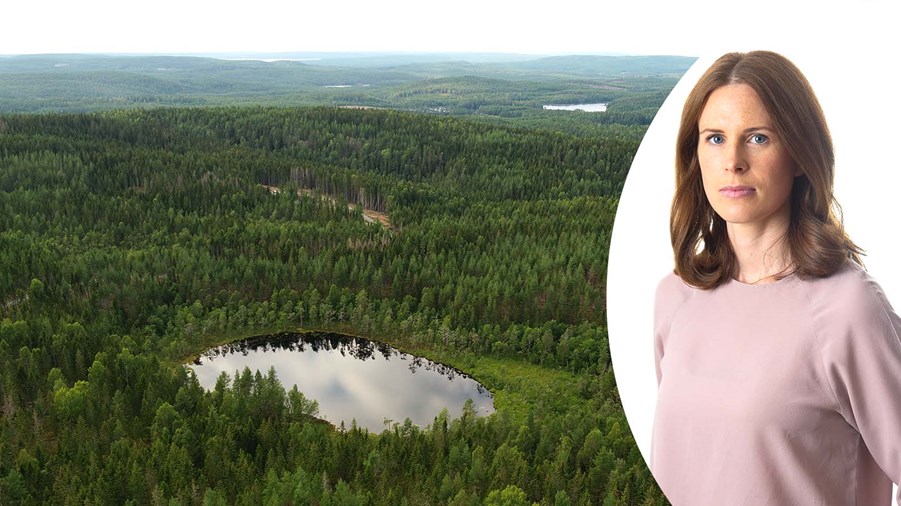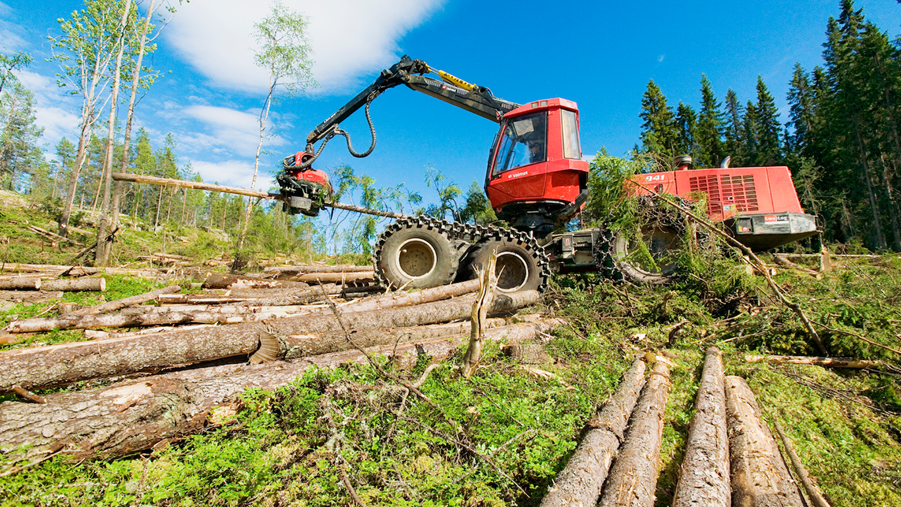
Deforestation is a global problem, aggravating climate change and biodiversity loss. On 17 November 2021, the European Commission proposed a regulation on deforestation-free products. The aim of the initiative is to ensure that only deforestation-free products are allowed on the EU market.
"EU action is needed to safeguard the world’s forests. We fully support the aim of the Commission’s proposal. The question is how to reach it effectively. In our new position paper, we do raise some concerns, not least about the way in which forest degradation is defined. I also wonder if some of the proposed due-diligence requirements are possible, or even desirable, to enforce", says Emma Berglund, Forest Director at the Swedish Forest Industries.
Defining key aspects appropriately is crucial
According to the most recent estimates, around 90 percent of global deforestation is caused by the conversion to agricultural land, followed by urban expansion, infrastructure development and mining. Deforestation is mainly a problem in countries in Southeast Asia, Africa and South America. In the EU, the area of forest increased by almost 10 percent in the past three decades.
"The Regulation should focus all its efforts on halting deforestation and not divert away from this problem and its root causes, namely agricultural expansion on former forest land. While forest degradation is a serious problem in some parts of the world, the concept is complex and context- and country-dependent. It should therefore not be defined by a narrow definition of “sustainable harvesting operations” as in the proposal, which does not consider other critical aspects, such as local needs and forest regeneration", says Emma Berglund.
Both deforestation and forest degradation have been defined by international bodies to facilitate enforcement and ensure consistency between different legal frameworks. The Commission has chosen to digress from established definitions, which has raised criticism from many within the European forest-based industry.
"It is important that the EU legal framework uses globally agreed and well-established definitions. The proposal, as it stands, could create uncertainty and legal risk to sustainable management operations. If the regulation is to include forest degradation, we suggest that the established approach of defining forest degradation at the national level is followed, while ensuring that forests are managed sustainably", says Emma Berglund.
The effects on global trade in sustainable products
The Swedish forest-based industry warns that the proposed regulation might hamper trade in sustainable wood-based products. The information requirements are feared to be so extensive as to exclude even some deforestations free products from the EU market.
"The new proposed information requirement on operators to collect the geographic coordinates of all plots of land where commodities and products were produced will be very difficult to accommodate. The system is not feasible for finished products. It is possible to follow the raw material from the harvesting site to industry, but after that the parts of the decomposed log can no longer be connected to a specific harvesting area. Legislation must therefore focus on a scale other than "plots of land", says Emma Berglund.
The Swedish forest-based industry already uses third-party verified certification to ensure that forests are managed in line with environmental, social, and economic requirements.
"The due diligence system must be practicable and not entail an unreasonably high administrative burden for companies and authorities. It must also ensure that existing certification systems can be used. The new system will otherwise not be able to handle large-scale volumes and global flows of commodities and products", concludes Emma Berglund.



